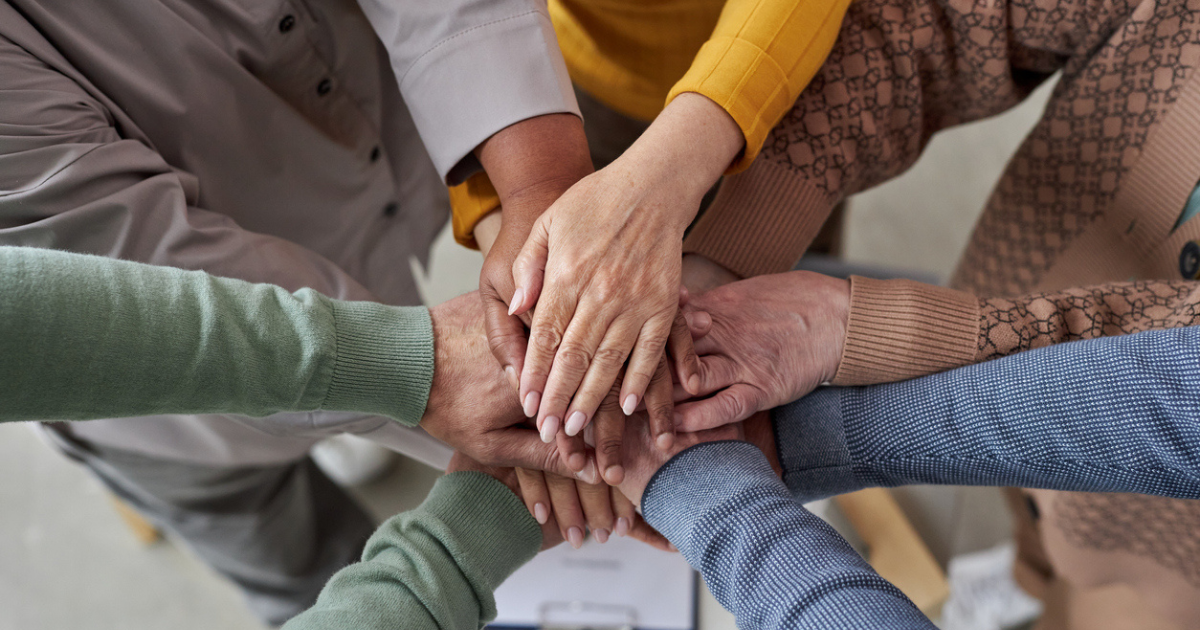
Becoming a caregiver is a journey that begins with love, responsibility, and a willingness to support a loved one through various stages of life. While caregiving can be deeply rewarding, it often comes with challenges that can feel overwhelming – especially for those new to the role.
Let us explore what to do as a new caregiver, looking at practical advice, emotional support, and resources to provide the best care while maintaining your well-being.
What Is a Caregiver?
A caregiver is someone who provides care and support to a family member or loved one, often without formal training but with a deep sense of responsibility and empathy.
This role is multifaceted and encompasses a wide range of duties that can be both emotionally fulfilling and physically demanding. Family caregivers are often tasked with managing complex medication regimens, scheduling and attending medical appointments, and monitoring the health and well-being of their loved ones.
Beyond these logistical responsibilities, caregivers are vital in offering emotional support and companionship. You help your loved ones maintain mental well-being through engaging interactions and being present as a steady source of comfort.
In addition to emotional care, caregivers assist with practical needs such as personal hygiene, mobility, and daily tasks. For those stepping into the role of a new family caregiver, it is important to recognize the profound impact your support has on your loved one's life.
Recognizing the Caregiver's Burden
While rewarding, the role of a caregiver can also present significant challenges. You face emotional stress as you navigate the complexities of balancing your time and resources. The demands can lead to feelings of overwhelm, especially when caregiving responsibilities are coupled with personal and professional commitments.
Recognizing the signs of caregiver burnout is critical in maintaining your well-being and your ability to provide effective care.
Common signs include persistent feelings of exhaustion, irritability, and neglect of personal health or social activities. To mitigate these burdens, you should take proactive steps such as seeking support from caregiver networks, setting realistic boundaries, and prioritizing self-care.
Additionally, understanding the importance of respite care and utilizing available resources can help prevent burnout and help sustain your essential role with compassion and resilience.
First Steps to Take as a New Caregiver
Taking these initial steps will lay a strong foundation for your caregiving journey, enabling both you and your loved one to thrive through this experience.
Educate Yourself About Caregiving
The first step in your journey as a new caregiver begins with understanding the unique needs and conditions of your loved one.
- Research their specific health conditions, gaining insight into symptoms, treatment options, and daily care requirements.
- Online courses developed for caregivers can broaden your knowledge, offering structured learning and practical tips.
- Books written by healthcare professionals and experienced caregivers provide both guidance and inspiration.
- Support groups (either online or in your community) provide valuable advice, shared experiences, and emotional support to help you feel less alone.
Establish a Care Plan
Creating a comprehensive care plan is critical for effectively managing your loved one's well-being.
Begin by assessing their medical needs, daily routines, and long-term objectives. This involves understanding their current health status, necessary treatments, and lifestyle adjustments. Develop a caregiving plan that addresses these aspects but is adaptable to changes over time.
Consider financial planning to manage costs associated with medical care and daily assistance. Equally important is addressing emotional needs to create an environment where your loved one feels safe and supported.
Effective communication with healthcare providers helps you stay informed about medical updates and treatments. Engaging with other family members in the planning process not only shares the responsibility but also strengthens the support network around your loved one.
Set Boundaries and Manage Expectations
To sustain your own well-being while caregiving, it is essential to establish clear boundaries. Recognize your limits and communicate them to those around you.
Being open about what you can realistically handle helps set expectations with family members and reduces potential conflicts. Regularly speak with healthcare providers to align care priorities and adapt plans as needed.
Practicing self-care and maintaining social connections are vital. They recharge your energy and preserve your health, making you a more effective caregiver. Remember, by caring for yourself, you equip yourself to better care for your loved one.

Understanding Financial and Legal Support for Caregivers
By knowing about financial and legal support, you can better navigate the complexities of caregiving.
Financial Assistance
Caregivers often face significant financial challenges, but there are various programs designed to help ease that burden.
Many states across the U.S. offer financial assistance through Medicaid, Home and Community-Based Services (HCBS) Waivers, and other caregiver support programs.
For example, Medicaid HCBS Waivers allow eligible family members to receive compensation for caregiving services. These programs vary by state, so it is important to research what is available where you live.
For those living in Idaho, you can find information about these waivers here.
Another option to consider is Cash and Counseling programs, which provide stipends to caregivers to cover expenses related to care. These programs give families more flexibility in managing caregiving needs and associated costs.
To explore your options, contact your local health departments or social services for information on state-specific programs. In many cases, working with a caregiver support network can also be beneficial. These networks provide emotional support and practical advice on accessing financial assistance.
Also check out Is Dementia Care Tax Deductible and Navigating Financial Aspects of Home Health Care.
Legal Considerations
Alongside financial support, understanding the legal responsibilities that accompany caregiving is vital. Legal documents such as power of attorney and healthcare directives play a key role in managing your loved one's affairs.
- Power of Attorney grants you the authority to make financial decisions on behalf of the care recipient.
- Healthcare directives specify their medical treatment preferences in certain situations.
It is wise to consult a legal professional to fulfill your legal responsibilities and protect yourself and your loved one. They can offer guidance tailored to your circumstances to help you understand your rights and obligations.
A legal advisor can also assist in establishing the necessary documents to comply with state laws and reflect your loved one's wishes.
Common Challenges Faced by New Caregivers
By understanding these common challenges and employing strategies to address them, you can maintain your well-being and continue to provide compassionate and effective care for your loved ones.
Balancing Personal Life and Caregiving Duties
One of the most significant challenges new caregivers face is balancing their personal lives and caregiving responsibilities.
The demands of caregiving can quickly become overwhelming, making it difficult to maintain relationships, pursue personal interests, or even manage daily tasks. It is essential for caregivers to set priorities and establish a routine that accommodates both their caregiving role and personal needs.
- Schedule regular breaks and set aside time for social activities will help maintain a sense of normalcy and prevent feelings of isolation.
- Enlist help from other family members or consider professional respite care for much-needed time to recharge.
Dealing With Caregiver Burnout
Caregiver burnout is a common and serious concern characterized by emotional, mental, and physical exhaustion. Recognizing the signs is crucial in addressing this issue.
To combat caregiver burnout, it is important to practice self-care and prioritize your well-being.
- Regular exercise, a balanced diet, and adequate sleep form the foundation of self-care to mitigate stress and improve resilience.
- Engage in hobbies or activities that provide joy and relaxation.
- Seek support from caregiver networks or counseling services for emotional relief and practical advice to feel supported and understood in your journey.
Navigating Difficult Family Dynamics
Caregivers often navigate complex family dynamics or face resistance from the care recipient.
Open and honest communication is critical to overcoming these obstacles. Establishing a dialogue with family members about caregiving roles and expectations can prevent misunderstandings and foster a collaborative environment.
When encountering resistance from the care recipient, approaching conversations with empathy and patience can help alleviate tensions and build trust. It is important to involve the care recipient in decision-making to respect their autonomy and preferences whenever possible.
You can manage these interpersonal challenges by fostering a supportive network and maintaining open lines of communication.

Resources for New Caregivers
These resources can help you navigate your new role, whether you need practical advice, emotional support, or tools to manage your caregiving responsibilities.
Local Community Organizations
Many communities offer local caregiver support groups and organizations that provide practical assistance. These groups not only offer emotional support but also provide educational workshops and tools for managing the complexities of caregiving. Connecting with these organizations early on can help you feel more prepared and less isolated.
Online Resources
The Internet offers a wealth of information and tools for new caregivers. Websites like Family Caregiver Alliance and AARP's Caregiver Resources are great starting points. They offer articles, videos, checklists, and webinars on various topics.
Caregiver Networks
Joining a caregiver network can provide invaluable peer support. These networks connect you with others in similar situations, offering a safe space to share experiences, ask questions, and gain advice.
In addition to national networks like the Caregiver Action Network, explore local resources through Area Agencies on Aging (AAA) or community health organizations. These agencies can provide in-person support, workshops, and community-specific services.
Balancing local and national networks will provide you with a wide range of support options.
Professional Help
While peer support is invaluable, there are times when caregivers need professional assistance to manage the complexities of their loved one's care.
Keystone Health offers expert services paired with guidance and support so you do not have to navigate the caregiving journey alone.
- Primary Care Services: Keystone Health's Primary Care provides your loved one with routine in-home health check-ups and medical attention from compassionate, knowledgeable healthcare providers.
- Palliative Care Program: For caregivers managing more serious illnesses, Keystone's Palliative Care Program offers critical support to relieve symptoms and improve the quality of life for patients with chronic or terminal conditions.
- Chronic Care Management: If you are caring for someone with multiple long-term conditions, Keystone's Chronic Care Management team can help coordinate treatments, manage medications, and create a tailored care plan.
- Geriatric Care: Keystone Health's Center for Geriatrics specializes in healthcare for seniors, addressing the specific medical and emotional needs of older adults.
- Dementia Care: Caring for someone with dementia presents unique challenges. Keystone's Dementia Care services provide expert care and support to help you and your loved one manage the symptoms of cognitive decline with dignity and compassion.
- In-Home Physical Therapy: If your loved one requires rehabilitation or physical therapy, Keystone offers In-Home Physical Therapy services. These allow patients to receive professional care in their homes, aiding recovery while reducing the strain on caregivers.
By taking advantage of these professional services, you can make sure your loved one's medical and emotional needs are met while receiving the guidance and support you need as a caregiver.
For more information and help, read:
- How Palliative Care Supports Caregivers
- Caring for the Caregiver
- Primary Geriatric Care Overview
- Home Health Care 101: Frequently Asked Questions
- A Primer to In-Home Care for Alzheimer's & Dementia Patients
- Why At-Home Physical Therapy May Be Better for Patients
Moving Forward With Confidence
Caregiving is a deeply personal and impactful role. It not only improves the quality of life for your loved one but can also bring a sense of fulfillment and purpose to your own life. Stay informed, seek support, and remember that your compassion and dedication make a profound difference every day.
If you are feeling overwhelmed or unsure where to start, do not hesitate to contact Keystone Health. Explore our many services designed to support you and your loved one. Together, we can provide the best care for those who matter most.
